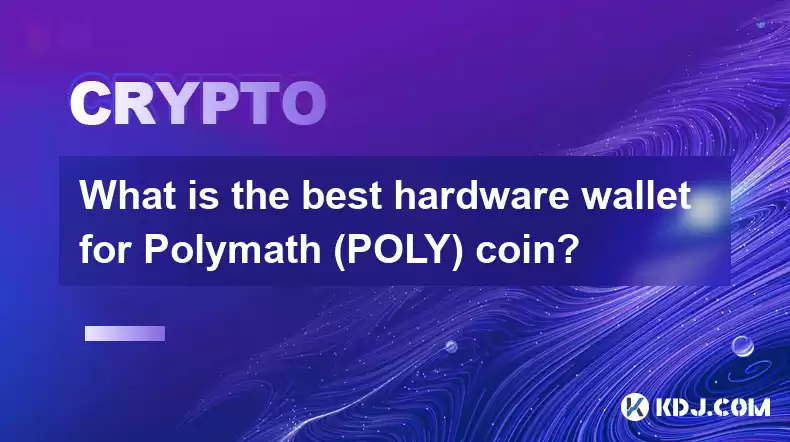-
 Bitcoin
Bitcoin $119900
0.94% -
 Ethereum
Ethereum $4633
9.35% -
 XRP
XRP $3.254
3.60% -
 Tether USDt
Tether USDt $0.9998
-0.04% -
 BNB
BNB $837.0
3.48% -
 Solana
Solana $194.3
10.87% -
 USDC
USDC $0.9998
-0.02% -
 Dogecoin
Dogecoin $0.2370
5.91% -
 TRON
TRON $0.3528
1.79% -
 Cardano
Cardano $0.8460
9.05% -
 Chainlink
Chainlink $23.61
12.06% -
 Hyperliquid
Hyperliquid $44.91
3.99% -
 Stellar
Stellar $0.4475
2.93% -
 Sui
Sui $3.899
5.78% -
 Bitcoin Cash
Bitcoin Cash $620.7
6.74% -
 Hedera
Hedera $0.2602
4.59% -
 Ethena USDe
Ethena USDe $1.000
-0.03% -
 Avalanche
Avalanche $24.84
8.52% -
 Litecoin
Litecoin $131.0
9.17% -
 Toncoin
Toncoin $3.509
3.47% -
 UNUS SED LEO
UNUS SED LEO $9.170
2.15% -
 Shiba Inu
Shiba Inu $0.00001360
4.82% -
 Uniswap
Uniswap $11.66
5.28% -
 Polkadot
Polkadot $4.180
7.93% -
 Ethena
Ethena $0.8242
2.31% -
 Dai
Dai $0.9998
-0.04% -
 Cronos
Cronos $0.1630
-3.04% -
 Pepe
Pepe $0.00001224
9.07% -
 Bitget Token
Bitget Token $4.464
1.16% -
 Aave
Aave $321.9
9.17%
What is the best hardware wallet for Polymath (POLY) coin?
Hardware wallets like the Trezor Model T and Ledger Nano X provide enhanced security for storing Polymath (POLY) by keeping private keys offline, protecting them from potential hacking attempts.
Dec 25, 2024 at 07:53 pm

What is the Best Hardware Wallet for Polymath (POLY) Coin?
Key Points:
- Polymath (POLY) is an Ethereum-based platform for issuing and managing security tokens.
- Hardware wallets are physical devices that store cryptocurrency keys offline, providing enhanced security.
- Several hardware wallets support Polymath (POLY), with each offering unique features and benefits.
- Choosing the best hardware wallet involves considering factors such as security, usability, coin support, and price.
- The Trezor Model T and the Ledger Nano X are highly reputable hardware wallets that support Polymath (POLY).
Hardware Wallets Compatible with Polymath (POLY)
Trezor Model T:
- High level of security with a touchscreen and tamper-proof design.
- Supports over 1,000 cryptocurrencies, including Polymath (POLY).
- Easy to use with its intuitive interface and mobile app integration.
Ledger Nano X:
- Bluetooth connectivity for mobile management and a large display screen.
- Supports a wide range of cryptocurrencies, including Polymath (POLY).
- Open source software and secure element chip for enhanced security.
SafePal S1:
- Affordable hardware wallet with a compact and portable design.
- Supports multiple cryptocurrencies, including Polymath (POLY).
- Intuitive user interface and support for mobile app management.
CoolWallet S:
- Crypto hardware wallet with built-in Bluetooth and NFC connectivity.
- Supports a wide range of cryptocurrencies, including Polymath (POLY).
- Curved touchscreen display and compact form factor for easy portability.
Factors to Consider When Choosing a Hardware Wallet
- Security: Look for wallets with strong hardware protection, such as tamper-proof designs, secure element chips, and multi-factor authentication.
- Usability: Choose a wallet with an intuitive interface, easy-to-use navigation, and clear instructions. Consider if it supports mobile app integration for convenient management.
- Coin Support: Ensure that the hardware wallet supports Polymath (POLY) and any other cryptocurrencies you hold or plan to acquire.
- Price: Consider the cost of the hardware wallet and factor in any additional fees or subscription costs. Determine if the wallet's features and security measures justify the price.
- Customer Support: Look for wallets backed by reliable and responsive customer support in case you encounter any technical issues or have questions.
Using a Hardware Wallet with Polymath (POLY)
- Acquire a hardware wallet compatible with Polymath (POLY).
- Set up the hardware wallet by creating a PIN and recovery phrase.
- Connect the hardware wallet to your computer or mobile device using the provided cable or Bluetooth connectivity.
- Download and install the relevant crypto wallet software or app that supports both the hardware wallet and Polymath (POLY).
- Initialize the crypto wallet and create a wallet address.
- Transfer Polymath (POLY) coins from an exchange or software wallet to the hardware wallet address.
- Store your hardware wallet securely in a safe location.
FAQs
Q: What is the difference between a hardware wallet and a software wallet?
- A: Hardware wallets are physical devices that store cryptocurrency keys offline, providing enhanced security compared to software wallets that store keys on a computer or mobile device.
Q: Why should I use a hardware wallet for Polymath (POLY)?
- A: Hardware wallets offer superior security by keeping your private keys offline and protected from potential hacking attempts.
Q: Which hardware wallet is the best overall?
- A: The "best" hardware wallet is subjective and depends on individual preferences. Reputable options with strong security and support for Polymath (POLY) include the Trezor Model T and the Ledger Nano X.
Q: Can I store multiple cryptocurrencies on one hardware wallet?
- A: Yes, many hardware wallets, including those mentioned above, support multiple cryptocurrencies, allowing you to manage your digital assets in a single device.
Disclaimer:info@kdj.com
The information provided is not trading advice. kdj.com does not assume any responsibility for any investments made based on the information provided in this article. Cryptocurrencies are highly volatile and it is highly recommended that you invest with caution after thorough research!
If you believe that the content used on this website infringes your copyright, please contact us immediately (info@kdj.com) and we will delete it promptly.
- Unich's OTC Exchange: Surging with $1.2B Volume – What's the Hype?
- 2025-08-13 02:50:11
- MoonBull's Explosive Moves: Your Crypto Whitelist Ticket to Ride!
- 2025-08-13 02:30:11
- MAGACOIN Finance: Don't Miss the Presale Bonus!
- 2025-08-13 02:30:11
- Trump's Crypto Kingdom: $2.4 Billion and Counting
- 2025-08-13 02:50:11
- Solana, LSTs, and SEC Approval: A New Dawn for Crypto?
- 2025-08-13 02:55:12
- Bitcoin's Profit Surge: Unpacking the BTC Value Boom
- 2025-08-13 02:55:12
Related knowledge

How to purchase Aragon (ANT)?
Aug 09,2025 at 11:56pm
Understanding Aragon (ANT) and Its PurposeAragon (ANT) is a decentralized governance token that powers the Aragon Network, a platform built on the Eth...

Where to trade Band Protocol (BAND)?
Aug 10,2025 at 11:36pm
Understanding the Role of Private Keys in Cryptocurrency WalletsIn the world of cryptocurrency, a private key is one of the most critical components o...

What is the most secure way to buy Ocean Protocol (OCEAN)?
Aug 10,2025 at 01:01pm
Understanding Ocean Protocol (OCEAN) and Its EcosystemOcean Protocol (OCEAN) is a decentralized data exchange platform built on blockchain technology,...

How to invest in Kyber Network Crystal v2 (KNC)?
Aug 12,2025 at 05:21pm
Understanding Kyber Network Crystal v2 (KNC)Kyber Network is a decentralized liquidity hub built on the Ethereum blockchain that enables instant token...

Where can I buy UMA (UMA)?
Aug 07,2025 at 06:42pm
Understanding UMA and Its Role in Decentralized FinanceUMA (Universal Market Access) is an Ethereum-based decentralized finance (DeFi) protocol design...

What exchanges offer Gnosis (GNO)?
Aug 12,2025 at 12:42pm
Overview of Gnosis (GNO) and Its Role in the Crypto EcosystemGnosis (GNO) is a decentralized prediction market platform built on the Ethereum blockcha...

How to purchase Aragon (ANT)?
Aug 09,2025 at 11:56pm
Understanding Aragon (ANT) and Its PurposeAragon (ANT) is a decentralized governance token that powers the Aragon Network, a platform built on the Eth...

Where to trade Band Protocol (BAND)?
Aug 10,2025 at 11:36pm
Understanding the Role of Private Keys in Cryptocurrency WalletsIn the world of cryptocurrency, a private key is one of the most critical components o...

What is the most secure way to buy Ocean Protocol (OCEAN)?
Aug 10,2025 at 01:01pm
Understanding Ocean Protocol (OCEAN) and Its EcosystemOcean Protocol (OCEAN) is a decentralized data exchange platform built on blockchain technology,...

How to invest in Kyber Network Crystal v2 (KNC)?
Aug 12,2025 at 05:21pm
Understanding Kyber Network Crystal v2 (KNC)Kyber Network is a decentralized liquidity hub built on the Ethereum blockchain that enables instant token...

Where can I buy UMA (UMA)?
Aug 07,2025 at 06:42pm
Understanding UMA and Its Role in Decentralized FinanceUMA (Universal Market Access) is an Ethereum-based decentralized finance (DeFi) protocol design...

What exchanges offer Gnosis (GNO)?
Aug 12,2025 at 12:42pm
Overview of Gnosis (GNO) and Its Role in the Crypto EcosystemGnosis (GNO) is a decentralized prediction market platform built on the Ethereum blockcha...
See all articles

























































































